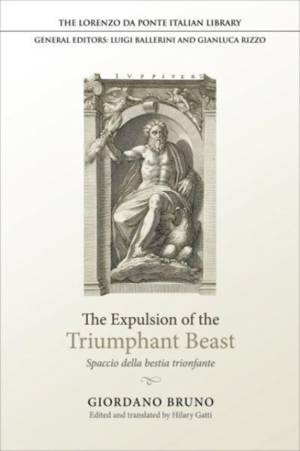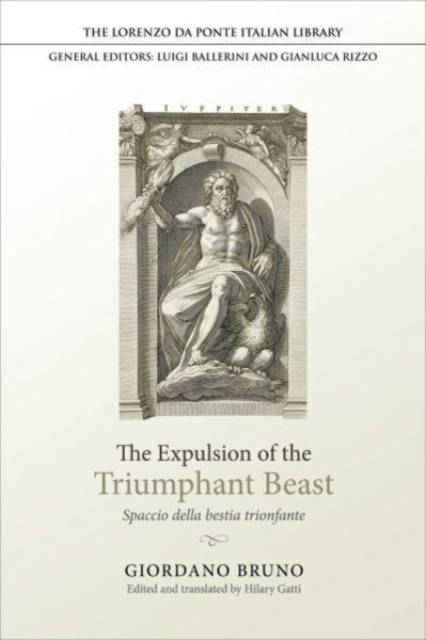
- Retrait gratuit dans votre magasin Club
- 7.000.000 titres dans notre catalogue
- Payer en toute sécurité
- Toujours un magasin près de chez vous
- Retrait gratuit dans votre magasin Club
- 7.000.0000 titres dans notre catalogue
- Payer en toute sécurité
- Toujours un magasin près de chez vous
Description
Published in London in 1584, The Expulsion of the Triumphant Beast is Giordano Bruno's first work of moral philosophy. It is dedicated with a long Explicatory Letter to Elizabeth I's most cultured courtier, Sir Philip Sidney. It is a book about moral reform, expelling the beasts of evil, and putting virtues in their place. Its theme is presented as an allegorical drama in which ancient myths assume modern meanings questioning the ways in which moral and religious reform have been conceived in both the ancient world and the cultures of Renaissance Europe.
This new Italian text, based on the original printed text of 1584 held in the British Library, presents a less modernized version than those presently available, while maintaining a modern page format. The aim is to provide a text closer to the sound of Bruno's original mix of classical Tuscan Italian and Neapolitan dialectical forms. This edition also presents a new translation designed to render Bruno's complex and baroque Italian into easily readable modern English.
Hilary Gatti introduces The Expulsion of the Triumphant Beast, underlining Bruno's meta-literary reflection on the nature of allegory and myth as well as the dramatic structure of his text. Drama, philosophy, and religion combine in this work to give an epic dimension to the perennial cosmic battle between evil and good.
Spécifications
Parties prenantes
- Auteur(s) :
- Editeur:
Contenu
- Nombre de pages :
- 464
- Langue:
- Anglais
- Collection :
Caractéristiques
- EAN:
- 9781487552008
- Date de parution :
- 06-05-24
- Format:
- Livre relié
- Format numérique:
- Genaaid
- Dimensions :
- 155 mm x 231 mm
- Poids :
- 798 g







